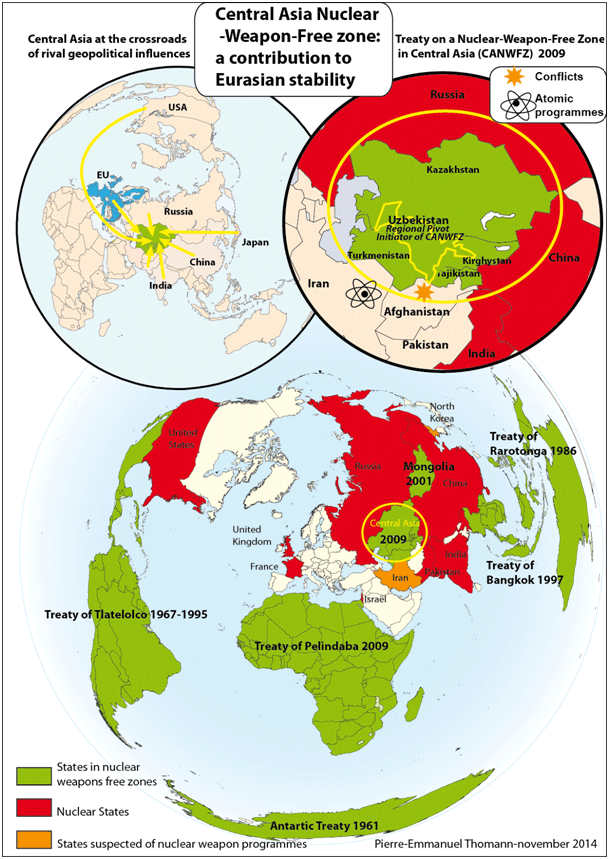Central Asia: a new nuclear weapon free zone
In the current troubled international arena, good news go unnoticed.
Since the media focus on the nuclear proliferation tendencies with the Iran and Northern Korean questions, little attention has been paid to the finalization of the new Nuclear-Weapon-Free-Zone in Central Asia.
On May 6, 2014 at the United Nations headquarters in New York, the representatives of the «five» nuclear states, the United States, the United Kingdom, France, China and Russia have unanimously signed the Protocol to the Treaty on a Nuclear-Weapon-Free-Zone in Central Asia. Opened for signature at Semipalatinsk the 8th of September 2006, it entered into force the 21th of March 2009 before to get full legitimacy with the nuclear States in 2014.
This new nuclear free trade zone is the last one of the former nuclear free zone similar treaties.
This event come after years of negotiations since the initiative was put forward by the President of the Republic of Uzbekistan Islam Karimov at the UN General Assembly in 1993. The final recognition of this nuclear free zone is undoubtely a great success for the Uzbek diplomacy as Uzbekistan has an ultimate interest in stabilizing its geopolitical environment to make succeed its ambitious long term program of modernization to reach world economic standards (the Uzbek model of modernization). This strategy is a unique mixture of national sovereign policies and inspiration from foreign modernization successes. Uzbekistan also position itself as a model of inspiration for countries aiming at modernization. Careful and wise strategy with the State as the central reformer to achieve World standards in the shortest possible laps of time is particularly adapted as the fluid geopolitical evolutions and demographic challenges on the Eurasian continent require bold and resolved political action.
This new Nuclear Weapon Free Zone is of particular importance for the stabilization of this strategic region of Eurasian and of world importance as Central Asian States have been until today subjected to geopolitical centrifugal tendencies because of the rivalry of the great world powers for access to minerals and political influence but also between the Central Asian States themselves whose relationship have been subjected to tensions after the dissolution of USSR and their new independent status. Read more
